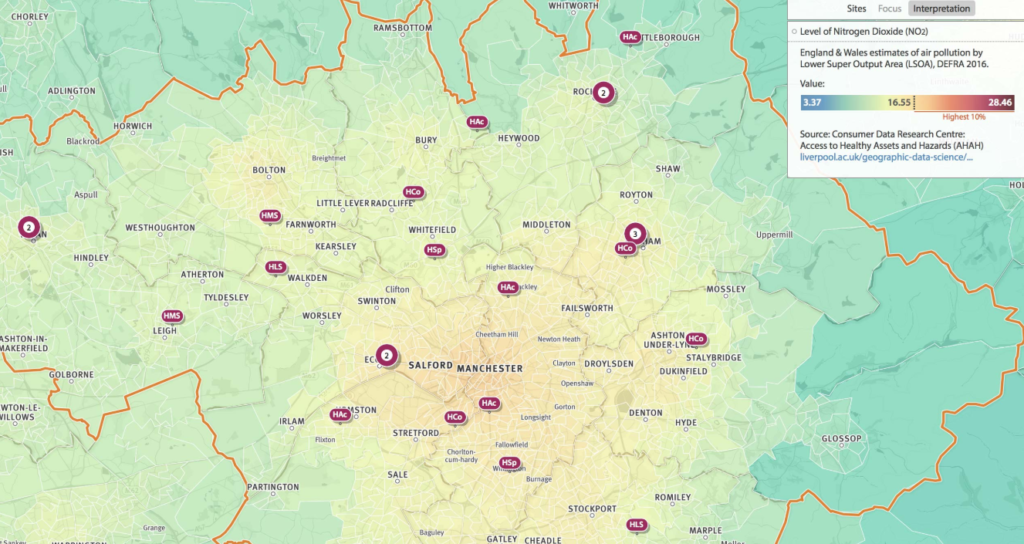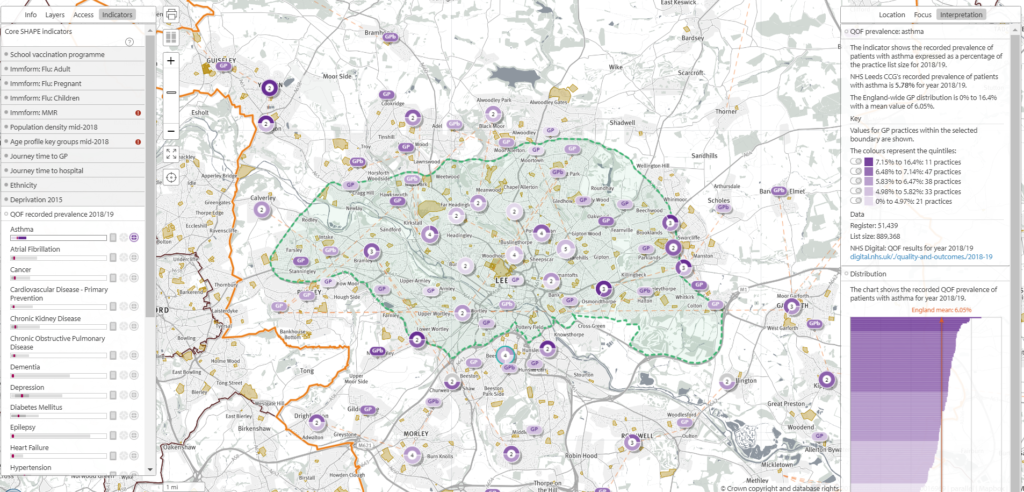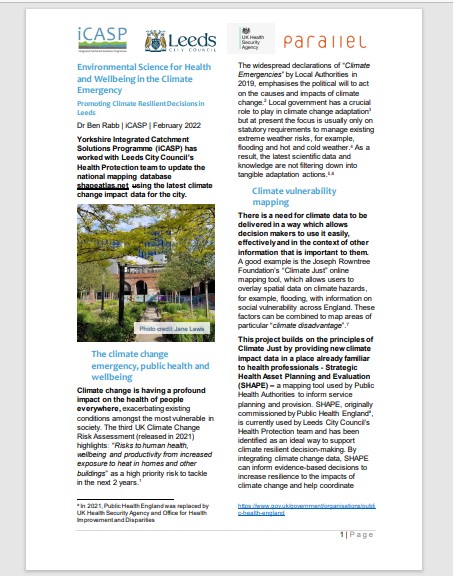Promoting climate resilient decisions in Leeds and other cities
Climate change is having a profound impact on the health of human populations, particularly exacerbating existing conditions amongst the most vulnerable in society.
The iCASP team have consulted widely with Leeds City Council and partner stakeholders to understand the current Decision-Making Landscape within Local Authorities (LAs) in relation to Health and Well-Being (H&WB) in the Climate Change Emergency (CCE).
The goal was to identify information needs amongst decision makers and opportunities for harnessing existing or forthcoming environmental data to meet them. Individuals covered a wide range of departments and areas of expertise, including:
- Public Health and Health Protection
- Transport
- Flood Risk Management
- Sustainable Energy, Air Quality & Climate
- Parks & Countryside
- Planning & City Development
- Housing & Sustainability
- Landscape Architecture
This project focuses on using the Strategic Health Asset Planning and Evaluation SHAPE tool – a GIS web-based tool – to become a focal point for pooling and visualising information related to health, environment, infrastructure and socio-economics to support evidence-based, collaborative and strategic decision-making.
The SHAPE tool, originally commissioned by Public Health England, has been used by Leeds City Council's Health Protection Team to inform healthcare planning across the city.
Following Leeds City Council's declaration of a Climate Emergency in 2019, alongside that of all the councils in Yorkshire, the SHAPE tool has been identified as an ideal way to support climate resilient decision-making. Currently there is no tool to help relevant teams collaborate when making evidence-based decisions to develop the city in a sustainable way whilst increasing resilience to the impacts of climate change. By drawing upon and integrating environmental data from iCASP universities, SHAPE will help to coordinate resources between different sectors who have increasingly common goals and outcome measures such as flood risk management, education and infrastructure planning and development.
This project will build upon iCASP's previous UKCP18 project and include climate change metrics that will help decision-making in the SHAPE tool such as projections of changes in the heat island effect, or flood and air quality risk.
It will draw upon data from iCASP's Systems approach to urban infrastructure project such as the source and pathway of flooding information vital for planning innovative flood mitigation measures, and will also enhance the outputs of the Green Blue Infrastructure project.
Many cities across the UK have been looking to Leeds as an example and frontrunner of addressing the climate change emergency. The results of this project could be used in other cities to tackle the climate change and health emergency.
Partners
Leeds City Council
Public Health England
Parallel
Project Team
Prof. Andy Gouldson, Dr. Jim McQuaid & Dr. Paola Sakai – University of Leeds
Dr. Ben Rabb, Dr. Jenny Armstrong, Dr. Janet Richardson & Dr. Tom Willis – iCASP Impact Translation Fellows
Kevin McGready – Public Health Leeds City Council
Dr. Revati Phalkey & Dr. Helen Macintyre – Public Health England
Ashley Cough – Parallel
Duration
January 2020 – November 2021


Outputs

E.SHAWE Final Brief
The personal information we request from you is used exclusively to help us understand the impact and use of the document. By providing your details and downloading this resource you consent to iCASP contacting you at a later date for feedback on how useful it has been. Your information will be kept secure in accordance with the Data Protection Act; it will be kept confidential and will be retained by iCASP for a maximum period of 10 years. You are under no obligation to respond and you can opt out at any time by contacting icasp@leeds.ac.uk.
